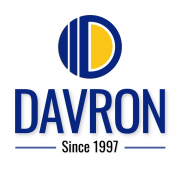If you don’t enjoy your job, it can feel like your entire career is over. You may be experiencing a range of emotions such as frustration, anger, sadness, and even apathy. Sometimes you feel like you’ve had enough and want to make big, drastic changes.
But do you want to change yourself? work…or do you want to change yourself completely? Career?
It may feel like you want to drop everything and change careers completely, but that may not be the answer. Changing careers is a big decision, but sometimes just changing jobs is enough. The hard part is figuring out if it’s your job that needs to change, or if you really want a whole new career. When you’re in the middle of it, it can be very difficult to tell.
Unfortunately, there is no easy way to determine this. It takes some effort to get to the bottom of the matter, but it’s not all easy. In this article, I’ll share some exercises that I use with my career coaching clients. These exercises will help you get a better sense of what’s important to you when it comes to your career and take yourself a little more seriously.
As for your own career well-being, it’s worth taking the time to figure it out.
Know what you like and dislike about your job.
Sounds easy, right? This challenge is harder to determine than it sounds, but it’s very important in determining whether you just need a new job or a whole new career.
Focusing on the details of what you actually enjoy (or don’t enjoy) at your job may reveal whether the problem is caused by the actual work or by other factors such as the work environment, your boss or co-workers. I can’t. The team, the company culture, the industry, whatever. Write a list of what you like and dislike about your current role.
For example, if you wrote down:
- “I don’t like my boss’ management style” = it could mean a new job
- “I don’t like dealing with people’s complaints all the time (in the hospitality industry)” = it could mean a new career
- “I don’t like the company’s mission or purpose” = it could mean a new job
- “I don’t like it when my job includes a lot of unexpected paperwork (as opposed to creative work)” = it could mean a new career
Now remember that it’s not that simple. Just because you wrote that you don’t like your boss doesn’t necessarily mean a new job is the answer. But it’s a hint as to what you don’t enjoy, and part of how you identify overall trends in what’s happening to you.
Clarify your career values
Understanding what you value when it comes to your career is crucial to finding what you enjoy. If you don’t enjoy your job, there may be something out of alignment regarding your values.
What is most important to you regarding your career? Below are some examples of values that may be important.
- independence
- Creativity
- balance
- Teamwork
- an opportunity to help others
- learn
- stable
- variety
- more!
Write down a list of your most important values regarding your career, then think about your current role and how it aligns with these values. If not, what are you missing and why? This will help you narrow down which careers and jobs are not a good fit for you.
Try This Simple Exercise To Learn Your Career Values

Wondering what your career values are? If so, download my free career values exercise to learn more about what’s important in your career. You can access it for free here!
Signs that you may need to change work
1. What you don’t like is part of your management style, team, or company culture.
As you read about your dislikes and career values, you may find that many of them have nothing to do with the career itself, but rather the company.
for example:
- don’t feel appreciated
- My boss doesn’t accept or even consider my ideas
- Teams are very competitive and don’t help each other
- There is always a negative atmosphere at work
- Inflexible / no opportunity to work from home even one day a week
2. There is only one job in your field.
If you’ve only ever had one job in your field, and you absolutely hate it, that could mean it’s not for you.But it could also mean that this was not the case company/work/team/etc. for you. If he has only one job experience in his chosen field, it can be very difficult to tell if he needs to change completely.
And whether you choose to be educated in the field or invest the time and effort to gain experience, you are already invested in this career. Depending on how much you invested and how long you worked in that job, it might be worth trying another job in the field before changing jobs. At least you’ll know that you’ve given that career enough chances and tried out multiple roles before spending time and energy on a career change to something else. Plus, you might even find a job you really love. If not, you can learn more about yourself in your next role and it might help you decide what to do with your new career.

3. I can’t see the future in my current role.
Think about what your future holds in this job. What will this career path look like in 5 years? 10 years? Ask yourself what future promotions might look like. For example, do you think you would enjoy your job more if you worked for your boss? Or maybe another senior position? If not, why not?
While looking for a new challenge, you can get bored with the position. And in many cases, the challenge may be to be promoted to a leadership position. Is a shift to leadership the right “change” for you? It’s the right career, but are you ready for the next step, your next job?
On the other hand, if you can’t even imagine taking on a manager role, even considering your career potential in the future, you may be leaning towards a career change.
Ask yourself the following questions.
- How would you feel if you were told tomorrow that you would never be able to work in that field again?
- If you could do this job in a different environment, would you enjoy it?
Signs that you may need to change career
1. What you don’t like about the job is a core part of your career.
As you read through what you don’t like, you may find that these are a pretty big part of your job. You probably wrote down what you didn’t like about the job:
- Always respond to customer complaints
- spend a lot of time on administrative tasks
- I don’t enjoy making sales calls
- don’t like working with children
- dislikes bureaucracy and predictability of work
when I write this out Clear As for the job itself, you may not love your actual job career.
The next question you need to ask yourself is, is this career: concentration About these things?
For example, if you don’t like bureaucracy and are in an HR role, are there roles in other types of companies with less bureaucracy (such as tech companies or startups)?
2. I’ve tried working with a few different settings, but the situation didn’t improve.
Maybe I wasn’t sure about my career path for a while, but I really tried. You have held multiple jobs within your field, possibly within different organizations and industries. If you’ve tried multiple roles and still find yourself enjoying none of them, the problem could be your career.
3. You think that other people’s work in your organization looks more interesting than your own.
Maybe you find the work in your department really uninteresting, but you may find that the work of your colleagues in other departments sparks interest.
If this is the case, it is likely that: something is missing Your current role appears to be in these other positions. I need to think a little and think about what appeals to me about this work. Is it a chance to work as a member or a team, or is it a chance to be more independent? Perhaps this piece seemed more analytical and interested you too?
By the way, this job may not be the ideal career for you. It’s a sign that you need to put some effort into identifying what you really want and what kind of career suits you best.
In practice it is not so easy to understand and can be very confusing.

As a career coach, I have worked with hundreds of clients to help them identify and pursue their ideal career. When you hate your job, it can be hard to tell if it’s a job or a career, and honestly, sometimes it can seem like there’s a problem with both.
Career coaching helps you identify what’s not working for you and create an action plan to move you in the right direction. Whether it’s identifying a career change need and looking at other careers to narrow down options, job hunting strategies, creating a new resume/cover letter/LinkedIn profile, getting another job in the same field Even if you’re brushing up on your interviewing skills for a job, you’ll actually enjoy it.
I am happy to assist you with my coaching services no matter what career challenges you are facing.
Want to know more?






